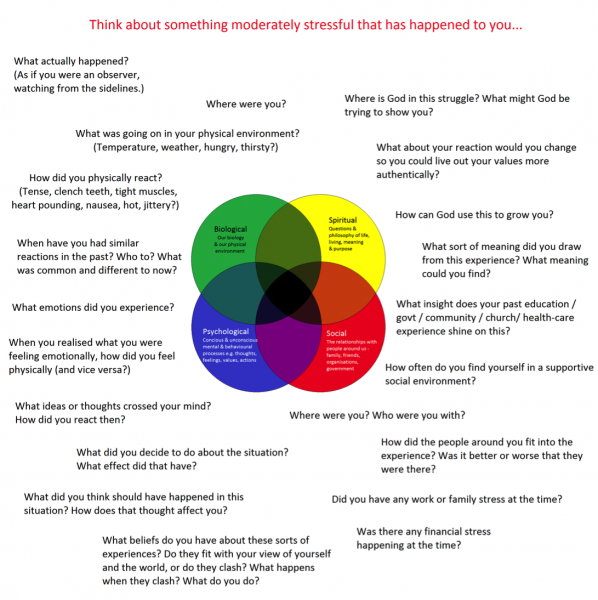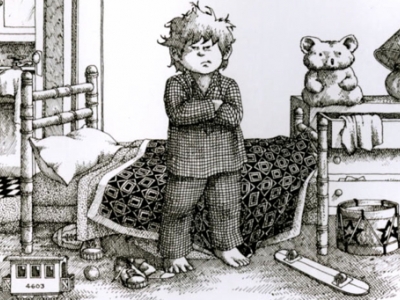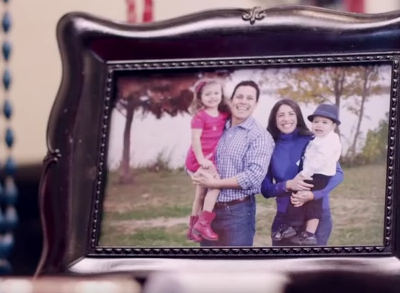
Understanding what makes you tick
Looking inwards can help us all become more compassionate, understanding and empathic people.
Let’s be honest. little humans are confusing, complex and complicated creatures.
But the reality is, the grown-up versions running around after them are often just as confusing and complicated!
In this article, I want to share a few things I’ve learned as a psychologist that I hope will encourage you to stop and reflect on what it actually is to be a human. I believe that this can help us love not just our own families but also those craving love in our churches and wider communities .
What does it mean to be human?
There are many forces that openly and covertly influence us. Being able to recognise and understand them builds compassion for ourselves and others. Health professionals from many disciplines will recognise the framework I’m about to describe - we call it the biopsychosocial-spiritual model (see my blog for a little of the history behind it). I think of it like a set of four circles, which overlap and interact with one another:

We are biological beings
As humans, we are held together by the laws of physics and chemistry. I still remember how amazed and awed I felt at university as I learned about how the intricate interaction of atomic forces, electrical charges and chemical bonds make the cells in our body, send information throughout the brain, and even make urine! (Unfortunately, it wasn’t the wonder of wee production I noticed when I had to toilet train my kids. I was more distracted by the amount.)
Our bodies are incredibly sensitive, finely tuned systems, composed of 37 trillion cells at last estimate (to give you some idea of how big that is, one trillion seconds would be 31.7 thousand years). So when something disrupts these systems or our physical environment – growth, change of temperature, availability of food and clean water, hygiene, hormones, injuries, disease – our physical presence and existence is affected. This in turn influences how we exist and express ourselves in other ways. (Think of the tired mum and the short temper!)
We are psychological beings
We have a conscious mind, an emotional life, and deeply felt psychological needs which can influence and direct our behaviour and also change the physical wiring of our brain.
When someone suffers some sort of brain injury or emotional trauma, or takes a drug that affects the way their brain processes information, their personalities, expectations and abilities can change. When we repeatedly practice an activity, our neural pathways shape themselves accordingly and become more strongly connected amongst themselves. (For example, when you actively teach your children that their “intelligence” can change through study and review, they can feel empowered to improve, and so their effort, morale, grades and overall academic performance can significantly increase.)
Even simple expectations can trigger changes in the brain – expecting something good to happen can increase levels of natural brain opioids, which relaxes our brain and helps us problem-solve; but expecting something bad triggers changes in the anxiety areas of the brain which makes us more sensitive to possible threats and restricts our problem-solving ability. We then make choices to behave based on our expectations and emotional reactions – which may be appropriate, or not. These are all normal parts of living in a fallen world. We must expect to see them in each other. Even when someone’s actions don’t seem to make sense – in their own mind, there will be some rationale. Look for it.
We are social beings
Each of us is embedded in a complex network of relationships with other people and organisations. These include our families, friends, church family, work colleagues,, education and health care providers, government systems and processes, cultural norms and expectations.
On a societal or cultural level, we can understand the urge to assimilate or fit in, or the impact of being on the positive or negative side of organisational policies (e.g. Medicare, tax law, detention of asylum seekers). Individually, we all know the psychological pain of disrupted relationships and the temptation to withdraw; or the subtle joy and motivational boost of being completely in sync with the people in our surroundings, and the urge to keep connecting. As parents, we know the power of social connections - for example, how we reward and reinforce our children’s behaviour and expression of their personality through our attention and quality time.
We are spiritual beings
Finally, there is that part of ourselves that looks to the big picture of life. The most convenient label for it is spirituality. How can I connect meaningfully to God? What is my purpose? How should I interact with the world? Why am I suffering? Do things happen for a reason? People have been asking and answering these sorts of questions for as long as there have been people. As such, it is a universal human experience - something that touches us all.
This spiritual dimension becomes the bedrock for those of us who believe that Jesus is Saviour and Lord. Above everything else, we believe that humans have inherent dignity because we are made in God’s own image, even though we are sinful, incapable of perfect behaviour or wellbeing without him.
But we also recognise we are not ‘only’ spiritual. God knits people together using physical and chemical forces (biological), to be in relationships (social), learning to love him and his people (psychological). And so, we need to remember that anything that influences one aspect of being human will have ripple effects through the others.
Recognising the four parts of your human-ness
To help you recognise how the biological, social, psychological and spiritual forces all work together, try this exercise below. Do it with a friend! Answer the questions, draw arrows (e.g. emotion – physical reaction; past reactions – people; thoughts – beliefs – values – God) and see where you end up.

Each aspect of our humanness is significant. When we are mindful of all the different forces at play in ourselves and the people around us, we can become more compassionate, understanding and empathic people, and better equipped to connect with all the different humans God has placed around us.
Once a clinical psychologist, Krystyna Kidson had kids, fell in love with coaching and is now The Psychologist Coach and founder of the Paraclete Initiative, a stress mastery and burnout prevention ministry; coming alongside God’s people with practical, effective strategies that they can use to throw off that which hinders and be free to love and serve God and others more meaningfully, effectively, and sustainably.
For more articles from Growing Faith, subscribe to our monthly e-newsletter.
To hear about the latest books and resources from Youthworks Media, subscribe here.







